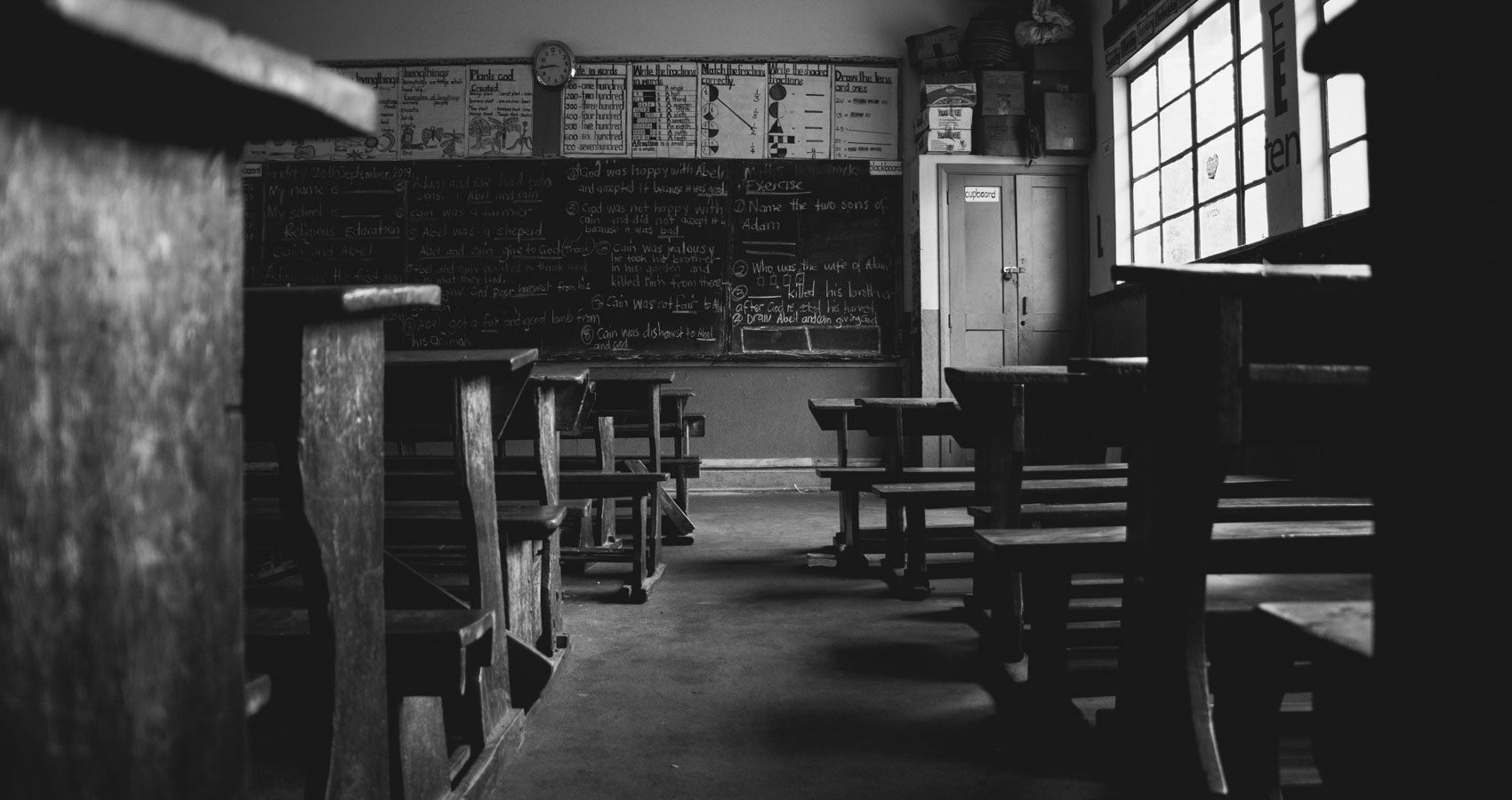My Mrs. Gunn
written by: Grendad
My little heart sank when, after a whispered conversation between you and the teacher in front of the class, I was called to accompany you to the headmaster’s study.
In our backstreet school every teacher had a leather three-tongued strap which all used regularly. The headmaster did not have a strap, he had a cane.
I remember my puzzlement on that walk behind you, presumably to be punished. I was confused by the smile as you turned to reassure me when tapping on the door before following me in.
Mr Harrison was holding a sheet of paper. ‘You wrote this. Where are the words from? Is it something you read?’
Was he about to cane me for my writing?
‘No sir.’
‘Where is this scene, this picture your words paint?’
‘I imagined it sir.’
He pressed me several times, making it obvious he thought this dirty, raggedy thirteen-year-old child was not telling the truth.
‘This description of a mesh of stars reflecting on the water.’ He stopped, waiting for my explanation but I didn’t know what to say. It was how I imagined the scene.
We, forty lads in the class, had been given a piece of paper and a pencil with the instruction to write about a boat on a lake. The teacher must have had a sense of humour. Bulwell was a small mining town north of Nottingham and I, along with most of those around me, had never seen a boat on a lake. However, I was an avid reader and did have a driving imagination. I saw the scene at night with stars reflecting on a gently moving surface.
I was passed the writing and told to read.
Mr Harrison listened then nodded to the kindly woman who had escorted me from my class.
Mrs Gunn was his secretary and the only female in the establishment.
‘Come here at the end of school this afternoon and wait for me to see you,’ she said.
Many of us remember those life changing events, I am lucky enough to have had a few, but this command was my first and probably the most important.
I had no idea why she wanted to see me but she was there at half-past-four and we went into the nearest classroom together.
Mrs Gunn placed a big book onto a desk, pointed to the seat and said, ‘I want you to read this to me.’
Almost seventy years on I remember the opening words.
‘Oh for a muse of fire.’
‘You can imagine that? See that picture?’
It was an invitation to a new life. Every single day that had gone before became meaningless, worthless. The contempt of my step-father who, throughout my childhood had told me, ‘You are no bloody good and never will be as long as you’ve got an ‘ole in your arse.’ ceased to matter in those few priceless minutes.
I could hear her asking me, ‘Would you like to learn more of this sort of thing?’
She knew, by the wonder impossible for me to hide, how I would answer. This lovely, educated, kind lady took me under her wing and opened her home and her heart to me.
After I had been working for nine years on the coal face she got me a job in an office and seven years on from that change I went to tell her I had been promoted to run an establishment with 88 staff. She was delighted and I asked why she had chosen to encourage me so much.
‘You always had a way with words and events appear to have verified my judgment,’ she said and went on to speak of an incident just before I left school aged 15.
She had chosen me to play Bottom who played Pyramus in the play within the play Midsummer Night’s Dream and six lads from this backstreet school won a cup at the Nottingham Arts Festival in 1950. We were then invited to perform for civic dignitaries in Nottingham Albert Hall. Luckily for me, every boy in the school had been given a pair of PT shorts and this made a suitable cover to wear under my skirt-like tunic. I arrived on the night and rushed to tell Mrs. Gunn, our director, I had forgotten my shorts.
‘Can you remember when you forgot to bring your shorts to play at the Albert Hall?’ she asked. ‘I told you to play the part wearing your underpants and saw from your expression that, aged fourteen, you had never owned underwear. I slid one of your legs into a sleeve of your jumper and tied the rest of the garment round your waist.’
‘I do remember,’ I said, ‘and I can recall your instruction when, thinking my beloved Thisbe had died, I went on to kill myself in the final act. You said ‘Die very carefully Pyramus, die very carefully.’
That day, when I was leaving, she gave me one of my most precious possessions, the book that I had read from at our first meeting, an 1864 copy of Shakespeare’s complete works.
- Baggage - December 8, 2021
- A Cruel Bird - August 26, 2021
- Charades at St. Margaret’s - May 31, 2020



